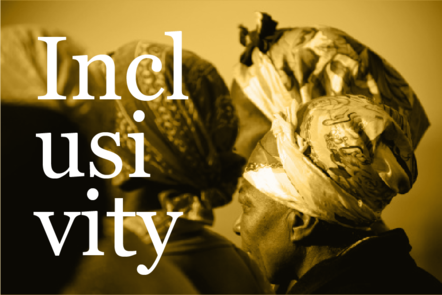Course preview
The main objective of this course is to present different strategies and methodologies for building and strengthening inclusive museums. With examples from around the world that have successfully engaged with and included historically marginalized communities in the museum sector, we support participants in assessing these, adapting them and implementing them into their local contexts.
Historically marginalized people are those who, for various reasons, were denied involvement and participation in mainstream life activities (economic, political, cultural and social activities). Such groups could be the elderly, persons with disabilities, migrants, members of the LGBTQI+ community, as well as ethno-cultural communities, minorities and Indigenous peoples.
This course will explore different ways and methodologies that museums around the world are using to engage with those living in the margins of society, to better address their needs and to become spaces of social inclusion and community building. Making use of representative case studies and discussions with practitioners, academics and community members, this course will dive into an exploration of a series of methodologies and strategies, such as co-curation, oral history, community collecting, inclusive design and conflict resolution, to illustrate the vibrant and evolving museum practice taking place in different corners around the globe.
Week 1
The first week will introduce some key concepts such as; exclusion, belonging and participation through readings and discussions. You will conduct some research, observation and exercises in analysis and self-reflexivity.
Week 2
The second week will focus on building collaborative methodologies at a strategic and leadership level. It will address issues of ethical leadership, participatory governance models and using Inclusive Design methods.
Week 3
The third week will deepen the lessons on collaborative methodologies by introducing practical examples and methods for use within museum programming.
Week 4
The fourth week will showcase case studies from around the globe for purposes of critique, possible adaptation and application within your own context.
We encourage you to maintain a journal for the duration of the course. Through regular free writing, word wheels, brainstorming, sketches or other creative means, self-reflexivity will help you to deepen your insights, articulate pertinent questions and generate new ideas.
You will be invited to read short articles, watch and listen to interviews with a range of practitioners, specialists and community representatives from across the globe. You will also be asked to engage in exercises which will help you put into practice the ideas and concepts shared. You are encouraged to read, watch or listen critically to the examples shared over the four weeks with a view to adapting where appropriate, or considering where they may catalyse new ways of building inclusivity in your context.
Over to you
As we begin this week’s lesson we invite you to think about what the concepts exclusion, belonging and participation mean to you. You are invited to share your thoughts in the comments section below.

